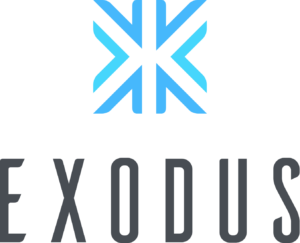Ethereum Wallets
Hello Reader,
In my previous post, I introduced you to Ethereum, including it's history and future. Now it's time to dip our toe in the water and take Ethereum out for a spin. In this post, I will take you through the main wallets available.
The water is warm so let's dive right in...
Just like with Bitcoin, the journey first begins with understanding how you store and transact the currency of the Ethereum network, Ether.
What wallets are available for Ether?
Generally, all of the wallet types that I covered in my introduction to Bitcoin wallets are available for Ethereum and the key principle that each wallet stores a series of private keys is the same.
There is however one key difference that you need to be aware of. As we learned in the last article, Ethereum makes smart contracts relatively easy to implement. As a result, many wallets include an additional feature over Bitcoin wallets which is the ability to browse and interact with decentralised applications built on the Ethereum network. Many of these dapps can be browsed and interacted with just like a web page. However, rather than being hosted on a web server, the dapps are running directly on top of the Ethereum network.
Let's take a look at some recommendations for each type.
Desktop wallets
Ethereum Wallet
Ethereum wallet is a simple wallet maintained by the developers of Ethereum. It operates as a full client and requires the entire blockchain to be downloaded. It does not enable you to browse dapps.
Mist is a fully featured wallet and dapp browser maintained by the developers of Ethereum. It operates as a full client and requires the entire blockchain to be downloaded.
Parity is an advanced wallet and dapp browser. The main ethos of the browser is to be lightweight and fast. It uses a process known as Warp Sync to speed up syncing of the Ethereum blockchain using snapshots. It also features traditional web browser integration so you can browse etheruem dapps in a standard browser.
Exodus is the first of a new breed of wallets which support multiple crypto currencies including Ethereum, out of the box. Whilst you control the keys, note that Exodus is not open source and does not feature some of the advanced features of the Ethereum network.
Desktop & Mobile wallets
Jaxx is similar to Exodus and supports multiple crypto currencies. It also has the advantage of being available on iOS and Android. You control the keys and Jaxx source code is browseable but again it does not feature some of the advanced features of the Ethereum network.
Online wallets
Just like with Bitcoin, Coinbase is also the biggest online Ethereum exchange. It provides you with a simple to use online wallet. Coinbase does not dapp browsing. Note that you do not own the private keys.
MyEtherWallet is an online open source wallet service which operates entirely in the clients browser. This means that MEW themselves never know the details of your private keys and you directly control them. MEW does not support dapp browsing.
Which of these would you recommend?
For someone completely new to Ethereum, I would start with Coinbase. They are well established, secure and used by millions. Beware that when using an online service, such as Coinbase, you do not have access to the private keys, so you are completely trusting the third party. This is fine for small amounts, but you should seriously consider setting up your own private wallet once you have a reasonable holding.
Once you have built up some confidence, I'd setup a desktop wallet, personally I'm a big fan of the speed and features of Parity. My personal favourite features are the snapshot syncing, timed transactions and traditional web browser integration. Check out my detailed guide to getting started with Parity.
Multi currency wallets, such as Exodus & Jaxx are tempting, however the extra complexity of supporting multiple currencies introduces additional attack vectors. Recently, Jaxx has faced controversy as it's PIN system was found to be vulnerable. In my opinion, these wallets have great potential and represent a promising future, but personally I'm waiting for them to have more thorough security audits before becoming an active user.
If you find yourself with a substantial holding, then a hardware wallet is the best way to go. I'll be taking a look at hardware wallets in more detail in a later article.
Adiós...
All comments and questions welcome, don't be shy!
If you’ve enjoyed this article, it would be my honour to have you as a regular reader.
Yours, X
Sources
Content: Xexr.com
Image: Wikimedia
Pensive roxy...









Putting Coinbase and MEW in the same category is pretty misleading.. Coinbase is an exchange, completely different from what MEW is. The fact that the user doesn't control the private keys on an exchange means it really isn't a wallet at all, it's just an account.
There's also zero emphasis on security in this article, which is a massive red flag for any readers. Security isn't an afterthought in crypto, it's a fundamental pillar of the technology and ignoring it means you don't even know what crypto is about and you definitely shouldn't be putting money into it.
Your post is perfect...thank you !!!!
Wonderful to hear, thanks for taking the time to comment :)
I have mist wallet for my ether, not had any problems with it, was a little bit of a struggle to get it to sync.
The problem i have with hardware wallets is they only cater to some crypto currencies